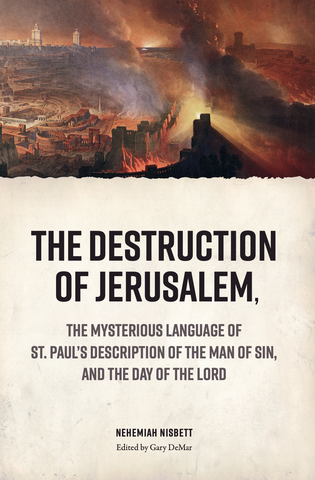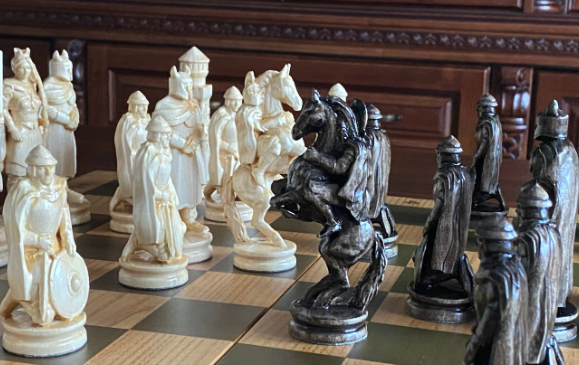Gary responds to two recent statements from Max Lucado and Michael Youssef regarding modern events as being a fulfillment of “end-times” predictions.
The accomplishment of our Lord’s prophecies of the destruction of Jerusalem, may likewise be considered as a standing monument to all future ages, of the truth of the observation of the wise man; that righteousness exalts a nation, but that sin is eventually, the ruin of any people [Prov. 14:34]
The Jewish nation were favored with many very extraordinary privileges, both of a civil and religious nature, which, if properly improved, would have distinguished them in an eminent degree above all their surrounding neighbors for national happiness. The whole history of that people affords ample evidence that they enjoyed prosperity, or suffered affliction, proportioned to their virtuous or vicious conduct. But in our Savior’s time they were remarkable for their profligacy and wickedness, and their punishment was equally distinguished for its severity. It was such as had no example in former ages and would never again be repeated.
******
There is another important use to be made of the prophecies of our Lord, concerning the destruction of Jerusalem, which I have chiefly in view in what is to follow, viz. That they serve as a key to many parts of the writings of the Apostles, which otherwise we shall not be able to explain, in a satisfactory manner.
For want of having given sufficient attention to these predictions and to the language of the ancient prophets, much obscurity still remains, particularly in the epistles, which have, I think not infrequently, been totally mistaken by commentators of deserved eminence and repute.
The passages I allude to, are those which speak of the coming of the Lord being at hand, drawing nigh, being ready to be revealed, and coming as a thief in the night, with other expressions of the like nature; which have commonly been understood to relate to the great and final judgment of the last day, or the consummation of all things.
Such language as this, applied to an event, the time of which was altogether unknown, and certainly some thousands of years distant, must appear very extraordinary in any writer; much more in the Apostles of our Lord, whose character for veracity and accuracy is deservedly esteemed.

The Destruction of Jerusalem
For most modern readers, Nehemiah Nisbett (d. 1812) is an unknown writer. He’s almost never quoted or cited, and yet his works were widely read in his day. He was most noted for his works dealing with the defense of Christianity against skeptics. Most of Nisbett’s works dealt with eschatology. Nisbett would be described as a preterist on passages that many partial preterists would say are yet to be fulfilled. This is especially true of his interpretation of 1 Thessalonians 5.
Buy NowGary responds to two recent statements from Max Lucado and Michael Youssef regarding modern events as being a fulfillment of “end-times” predictions. Gary shows how everything they say is pointing to the last days has already been fulfilled in the first century. We are reading history, not prophecy, in Matthew 24.

